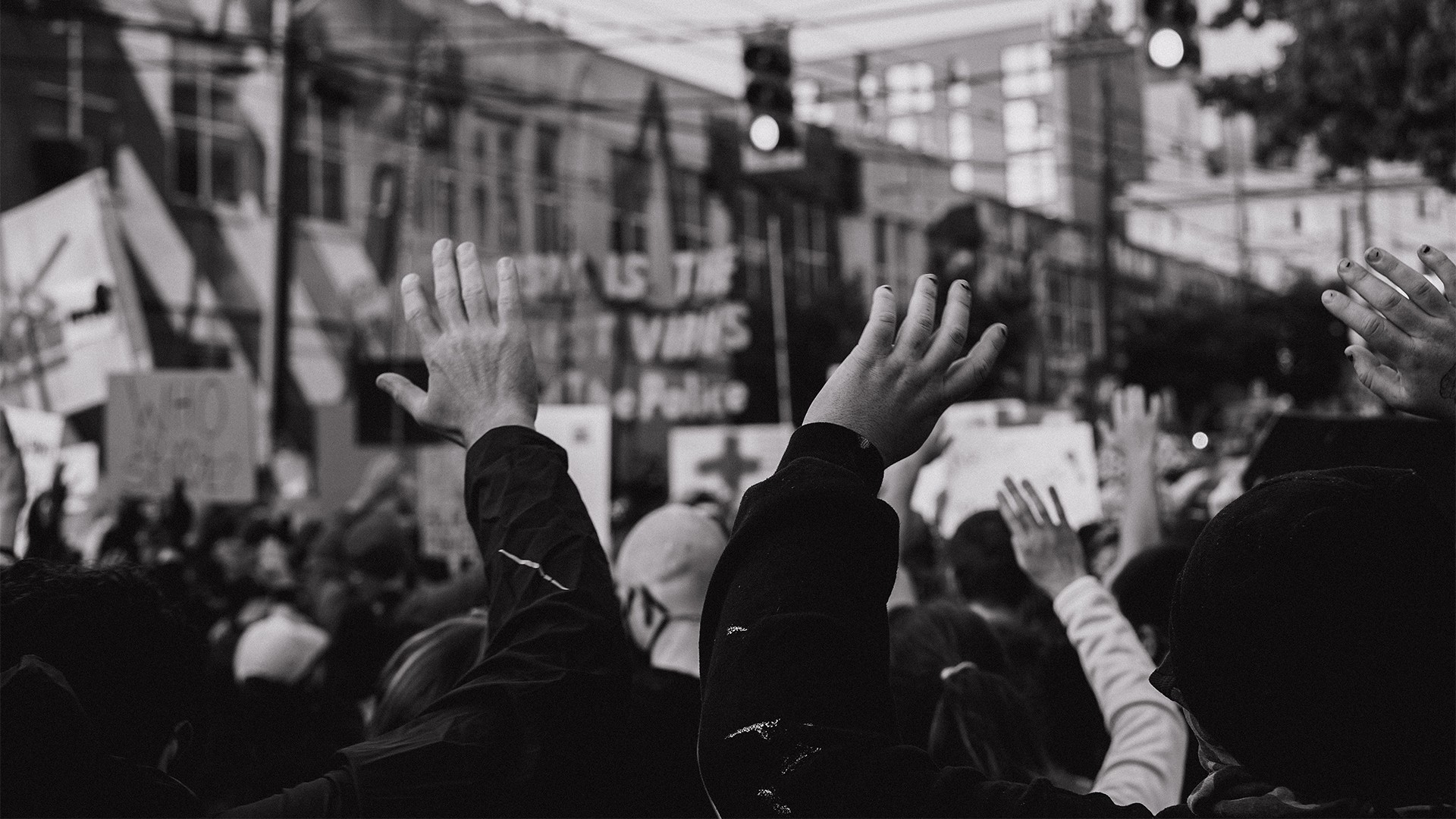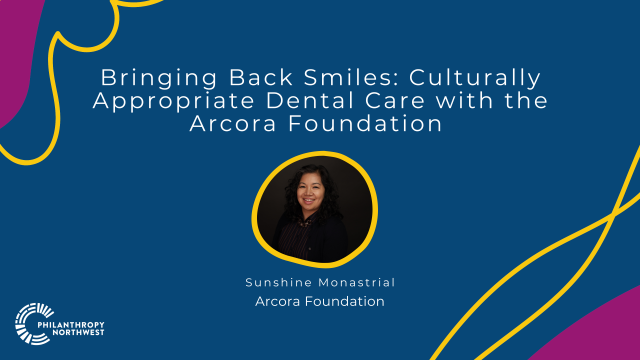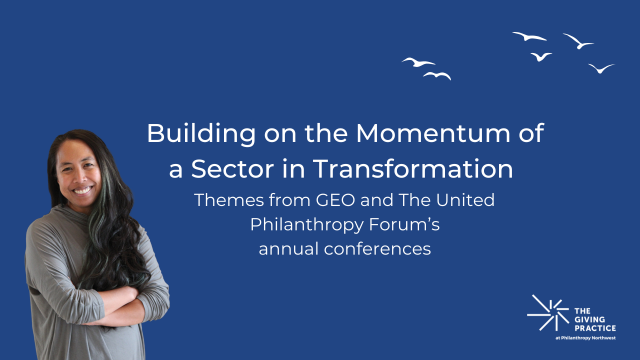
Last June we committed as an organization to building an anti-racist future. George Floyd’s murder and the protests that followed felt like a tipping point for our nation to finally acknowledge our shameful history and the ugly truths of racism. COVID-19 laid bare the historical and systemic inequities in food, housing, healthcare and employment as Black, Indigenous and People of Color (BIPOC) communities were disproportionately impacted.
We pledged to do everything in our collective power to right historic and present-day injustices and asked philanthropy the heavy question of how we reimagine not just funding our communities, but earning their trust, acknowledging and addressing our inherent privilege and power, and working together with Black communities.
While the Chauvin verdict delivered a small degree of accountability, there will only be justice when there is Black liberation. Philanthropy Northwest will continue to work in action towards the vision of a world where we embrace Black joy, affirm Black lives and Black communities thrive free from the oppression of white supremacy.
The public narrative has started shifting from a racial reckoning to a post-pandemic return to “normal.” Even within philanthropy there is a sense that crisis mode is over and we are in danger of packing away nimble responses and bold thinking for the next emergency. But “normal” doesn’t work for Black and Indigenous communities, and never has. The heavy question we ask now is, how many more? How many more lives lost before philanthropy devotes the same resources, collaborative action and funding to the ongoing crisis of racism? We must recognize “normal” as a synonym for comfort with the status quo and abandon the idea of business as usual.
We are guided by the words Se-ah-dom Edmo, executive director of MRG Foundation, shared at our PNW20 virtual conference: “Our words are our prayers for the kind of world we want to call into existence.” During that conference last fall, we convened our network in service of transformation to reimagine a new way forward as Northwest philanthropies and find ways to rebuild alongside our communities. We asked philanthropy, how do we think big in response to centuries of racism?
At Philanthropy Northwest, we are thinking more expansively about our unique role as a philanthropy-serving organization and how we use our influence and privilege to advocate for systems change, center new voices and challenge our sector to build a new vision of philanthropy. We are focused on the work of dismantling white supremacy in our own policies and actions and disrupting narratives that hold us back from thinking creatively about systems change. While we’re having challenging conversations internally, we know that we still have much work to do in our journey to become an anti-racist organization.
We continue to work together among our staff, consultants and board towards action and accountability, and call on our network and partners to hold us accountable to our commitments.
Our Actions – Where We Are Now
Last year, we pledged $50,000 of CEO strategic funds towards Black-led organizing as part of our response to dismantling racist and unjust systems. These funds went to Social Justice Fund Northwest’s Black Led Organizing Giving Project, a participatory grantmaking process that puts decision-making power into the hands of Black community members and gives grants to Northwest Black-centric organizations on the front lines of social change. This funding decision was led by our Black staff, choosing an existing giving project cohort with deep connections to grassroots organizing groups so that the money would get to the community quicker than if we developed our own internal process. Black- and Indigenous-led organizations are already doing the work to fight systemic racism and oppression, and philanthropy must trust instincts and abilities to deliver on a much larger scale.
We asked ourselves what voices were missing from our network. We explicitly centered racial equity within our membership operations with the intention of honoring the work of BIPOC organizations and including more BIPOC leaders in our network. We know that this will not happen overnight, but we are taking steps that demonstrate our commitment – including establishing a distinct membership category for Native-led organizations whose primary mission is to serve Native communities and identity-based organizations led by a person of color. We acknowledge that giving traditions have existed for centuries in Indigenous communities and strive to take a more inclusive view of how we define philanthropy.
We seek to learn and model for our members and the field new ways of operating in service, action, transformation and repair. Our staff learning is centered on the intersection of reparations and philanthropy, acknowledging that philanthropy has exacerbated racist systems through inequitable giving. We see this as an opportunity to envision philanthropy as action and build a framework for greater accountability and transparency. Philanthropy Northwest is also informed by the national momentum around legislation in Congress that would create a commission to study and develop proposals for federal reparations. During Foundations on the Hill in March, Philanthropy Northwest spoke with lawmakers about aligned work we are doing to examine reparations in philanthropy.
The Questions We Ask Now
We are asking ourselves and our peers, beyond reimagining philanthropy, how will we build momentum for the long view of meaningful systems change? How will we shift power to Black and Indigenous communities to create true relationships and trust? Will philanthropy use its privilege and voice to challenge “normal” as a response to dismantling systemic inequities and racism? Without collective action, Black lives will continue to be lost on our watch.
“An America that asks what it owes its most vulnerable citizens is improved and humane. An America that looks away is ignoring not just the sins of the past but the sins of the present and the certain sins of the future.” – Ta-Nehisi Coates
We will not look away.


